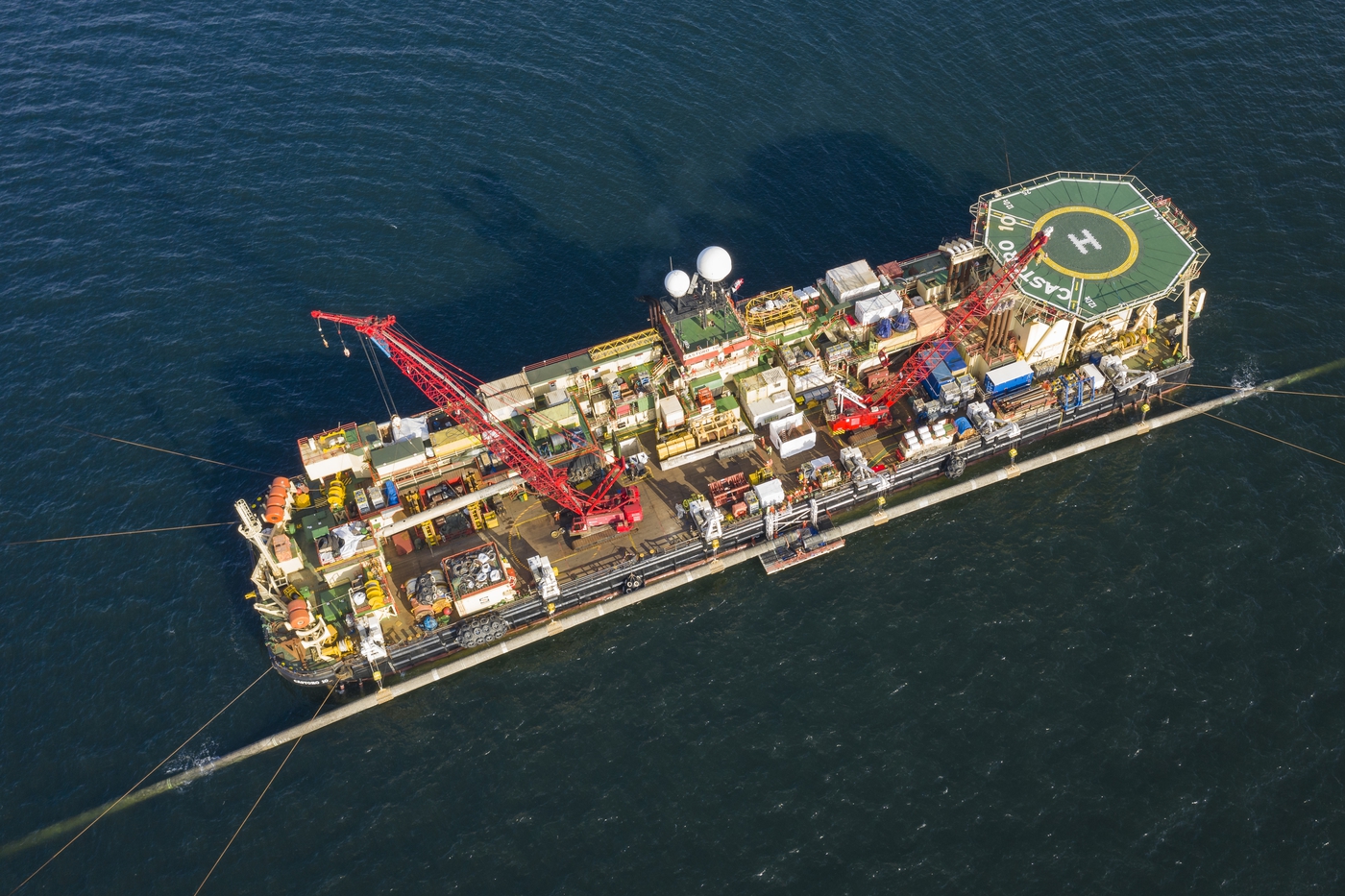[ad_1]
The government of the northern German state Mecklenburg-Western Pomerania announced She wants to set up a state “climate” foundation to avoid US sanctions against companies involved in the completion of the controversial Nord Stream 2 natural gas pipeline.
The coalition of Social Democrats (SPD) and the conservative CDU of Chancellor Angela Merkel wants to use the so-called “Foundation for Climate and Environmental Protection” to quickly buy and store products that are needed for the completion of the pipeline, such as building materials – and so on shield selling companies from future sanctions. The materials will later be made available for construction. Mecklenburg-Western Pomerania is located on the Baltic Sea, where the pipeline will be connected to the German network.
Nord Stream 2 AG, which is wholly owned by the Russian energy company Gazprom and which is building and operating the pipeline, will initially pay a sum of 20 million euros into the foundation. The state provides 200,000 euros. The plan has yet to be approved by the state parliament (scheduled for January 7th) and the regulatory authorities. The government said the foundation could be up and running in a matter of days.
The government defended its decision to establish its plans as the basis for climate protection.
“We are firmly convinced that the Baltic Sea pipeline is necessary for the success of the energy transition,” said Prime Minister Manuela Schwesig at a press conference. “If we want to get out of coal and nuclear energy, then we need a transition technology.” The foundation offered the opportunity to contribute to the completion of this “bridging technology” should talks between the EU and the US administration not avert sanctions.
Since the demands for stronger climate protection have increased in recent years, the gas industry is increasingly offering its product as a clean alternative to oil and coal and as a supportive measure for wind and solar energy in the transition to a climate-friendly society. The benefit of natural gas in terms of climate change is controversial. When burned, it not only emits COâ‚‚, but mainly consists of methane, making it a powerful greenhouse gas itself. The emissions along the entire production-transport-use value chain are considerable. Critics also warn that betting on gas for short-term carbon savings will perpetuate its consumption and make it more difficult and expensive to achieve carbon neutrality later on. Natural gas is a fossil fuel.
[ad_2]




